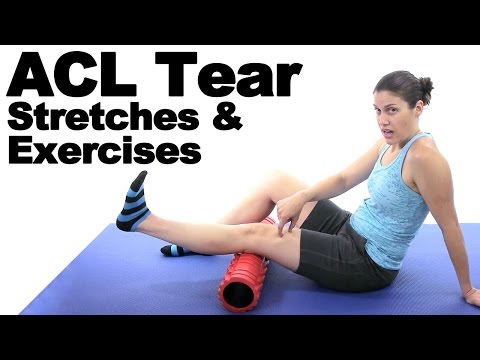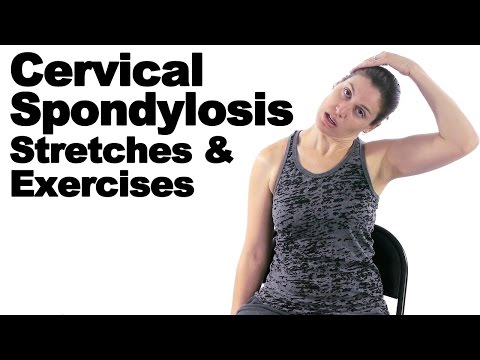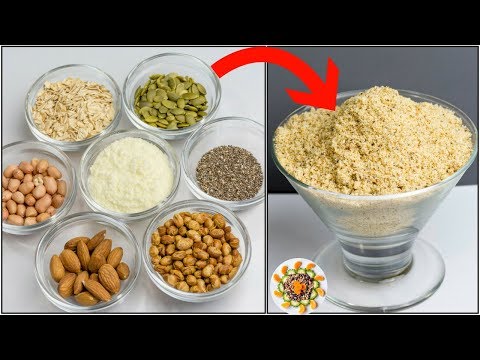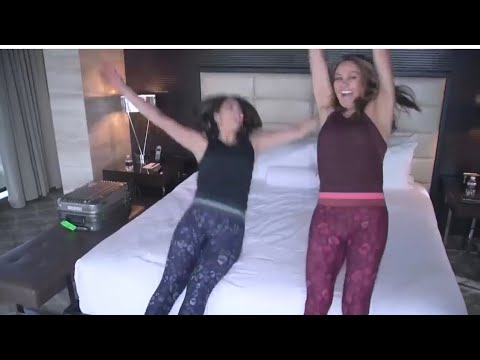
The Anterior Cruciate Ligament (ACL) helps keep the knee stable, and prevents it from sliding forward. When you have a Torn ACL, your knee can become painful and unstable. These stretches and exercises are for a non-operative or pre-operative injury. See Doctor Jo’s blog post about this at:
If you have an ACL surgery, make sure you follow your doctor and physical therapist protocols because there are several different ways to do the surgery, and they require different rehab during the recovery.
The first exercise is going to be a heel slide. Sit on the ground or your bed with the leg you want to exercise straight out in front of you. You can bend the other one up to a comfortable level or leave it all the way down. Slide your leg up keeping your foot flat on the ground. Go as far as you comfortably can, and then slide back down. Start with 10 of these, and work your way up to 20-25.
Now you will do a quad set. Put your leg you want to exercise out in front of you. You want to squeeze or activate the quad muscle by pushing your knee down into the ground. If you want to roll up a small towel to place underneath your knee for a target, you can. Also, pulling your toes up towards you will help straighten out the knee and contract the muscles. Hold this for 3-5 seconds and relax. Start with ten of these and work your way up to 20-25.
Then you will do an ankle pump. You can prop your ankle up on something if you want, but keep your heel free to move around. I am using a roll, but you can just hang your foot off of the bed or stool. You are going to pull your toes up at your ankle, and then push down like you are pushing on a pedal. This is dorsiflexion and plantarflexion. It works as a natural pump to get the fluid and inflammation out of the leg, so you can do this several times a day.
Next you will do a short arc quad (SAQ). For this, you will use a foam roll or a rolled up beach towel. You want something big so you have a good bend in your knee. Prop your leg over the roll with your knee on the roll. Try to keep your knee on the roll the whole time, and then lift your foot in the air until your leg is straight. If you pull your toes towards you at the end, this will help activate all the muscles in the leg. Try not to go fast because then you are only using momentum. Go slow and controlled with your movements. Start of with 10 of these, and then work up to 20-25.
Now you will do a straight leg raise (SLR). Lie down on your back, and bend one knee up. Straighten out the leg you want to exercise. You can prop up on your elbows or sit up, but this will make it harder. Pull your toes toward you to help lock out the knee. Just lift your leg to the height of your bended knee. There is no need to kick your leg way up in the air, and it actually takes away from the exercise. Make sure you are slow and controlled with this exercise. Going fast and using momentum will not be effective. If you get to 20-25 and it is easy, then you can add weights if you have them.
Finally, you will do some knee props. You can use a roll to prop up your leg, or you can sit in a chair, and have something of equal height in front of you. It can be another chair, an ottoman, etc. Place your heel on the other chair, and try to straighten out your knee as much as possible. If this is not enough stretch, you can add weights to it. A sack of potatoes works well, but sometimes it is too much weight to start with on your leg. Get a plastic bag, and add some soup or vegetable cans to it. Slide your foot through the loop of the bag, and place it just above your knee. Try to hold it there for 5-10 minutes and relax as much as you can. Over time, you can add more cans of soup.
Related Videos:
Knee Pain Stretches & Exercises:
3 Best Stretches for Knee Pain:
=======================================
ACL Tear Stretches & Exercises:
DISCLAIMER: This content (the video, description, links, and comments) is not medical advice or a treatment plan and is intended for general education and demonstration purposes only. This content should not be used to self-diagnose or self-treat any health, medical, or physical condition. Don’t use this content to avoid going to your own healthcare professional or to replace the advice they give you. Consult with your healthcare professional before doing anything contained in this content. You agree to indemnify and hold harmless Ask Doctor Jo, LLC and its officers for any and all losses, injuries, or damages resulting from any and all claims that arise from your use or misuse of this content. Ask Doctor Jo, LLC makes no representations about the accuracy or suitability of this content. Use of this content is at your sole risk.






